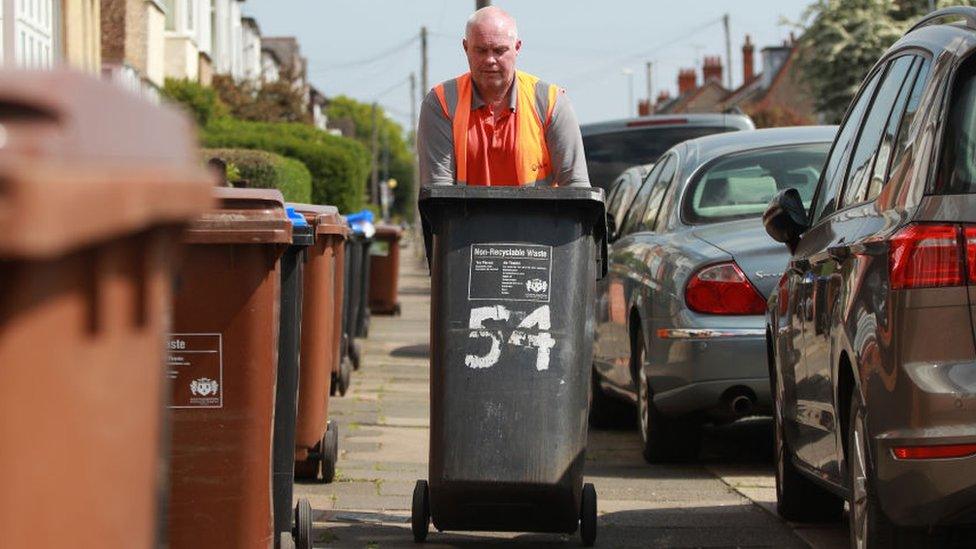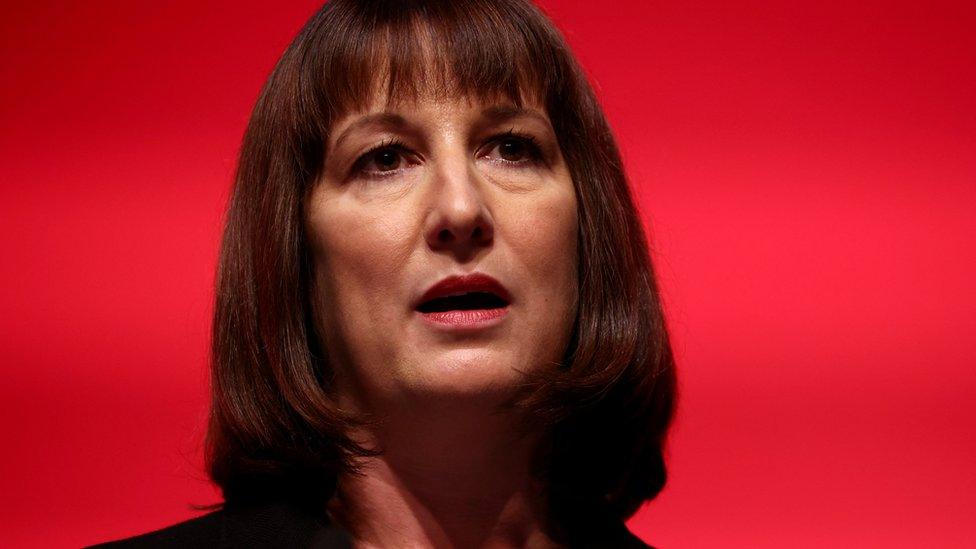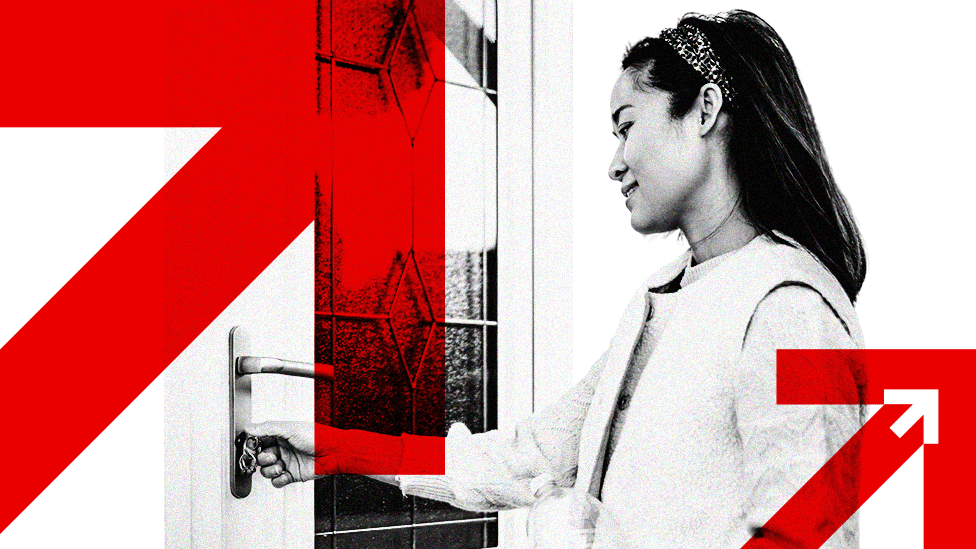Council tax would be frozen for a year, Labour propose as campaign launches
- Published
- comments
Sir Keir Starmer on his plan to freeze council tax as he launches Labour's English local election campaign.
Labour would freeze council tax this year if it was in government, the party has announced as it launches its local elections campaign.
Council tax for millions of households in England will rise on 1 April, with many councils due to raise rates by 5%.
Labour leader Sir Keir Starmer said freezing the current rate could be paid for with funds from an increased windfall tax on energy firms.
On 4 May, 230 councils across England will hold elections.
In a speech in Swindon, Wiltshire, Sir Keir said freezing council tax was "a tax cut for the 99% of working people, compared with the tax cut for the richest 1% that we get under the Tories".
Pressed on whether the party would freeze council tax if it won the next general election, which has to be held before January 2025, shadow chancellor Rachel Reeves said she "won't announce any spending increases or tax cuts that aren't fully costed and fully funded".
"We'll have to see what the public finances look like going into a general election," she told BBC Radio 4's Today programme.

Council tax is used to fund local services such as bin collections
In his speech in Swindon, Sir Keir urged people to vote Labour to "send a message" to the government that "Britain deserves better".
"Decline is not inevitable, the cost-of-living crisis is not inevitable, sticking plaster politics is not inevitable," he said.
He added that there were "choices to be made", highlighting Labour's pledges to boost the number of neighbourhood police, doctors and nurses, as well as to cut business rates to help revive High Streets.
Labour is currently the second largest party on Swindon council, with 23 seats compared to the Conservatives' 32.
The party have already announced they will insulate 19 million homes as part of a "national mission" to reduce energy bills and make the UK more energy independent.
They have also pledged to reverse government plans to scrap the £1.07m lifetime limit on tax-free pensions savings and abolish non-dom tax status.


Council tax is a compulsory charge on properties in England, Scotland and Wales set by local authorities to raise money to spend on providing services in their area.
The government has increased the amount that councils in England are allowed to put up council tax without having to hold a local referendum.
Those with social care duties can raise council tax by 5%, while others can put it up by 3%.
Most councils are expected to impose the biggest increase they are allowed to without consulting residents.
In England, if you pay the of £1,966 a year, a 5%, rise would mean an extra £98.30 across the year - pushing Band D council taxes to more than £2,000 a year for the first time.
Related topics
- Published30 March 2023

